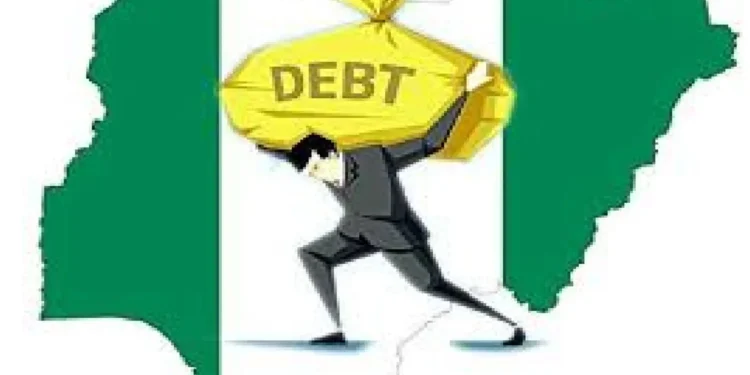Nigeria’s total public debt surged by ₦24.33 trillion in just three months, reaching a staggering ₦121.67 trillion ($91.46 billion), according to the Debt Management Office (DMO). This increase, noted as of March 31, 2024, reflects both domestic and external borrowing by the federal and state governments, as well as the Federal Capital Territory (FCT).
The rise in debt from ₦97.34 trillion ($108.23 billion) in December 2023 to the current figure is primarily due to new borrowing to cover the 2024 budget deficit and the securitization of part of the ₦7.3 trillion Ways and Means advances from the Central Bank of Nigeria. The DMO highlighted that while the total debt in dollar terms actually decreased by $16.77 billion, or 18.34 percent, due to naira depreciation, the nominal debt increased significantly.
Breakdown of Debt
– **Total Domestic Debt:** ₦65.65 trillion ($46.29 billion)
– **Total External Debt:** ₦56.02 trillion ($42.12 billion)
The DMO used an official exchange rate of ₦1,330/$ to convert external debts into naira, compared to the ₦899.39 rate used in December 2023. Excluding the impact of exchange rate movements, domestic debt saw a notable increase from ₦59.12 trillion in December to ₦65.65 trillion by the end of March 2024.
Budget Deficit and Borrowing
The sharp rise in debt is largely attributed to financing the 2024 budget deficit and securitizing the Ways and Means advances. The 2024 budget, approved at ₦28.7 trillion, was ₦1.2 trillion higher than initially proposed by President Bola Tinubu. Dubbed the ‘Budget of Renewed Hope,’ it set the oil price at $77.96 per barrel with a daily production estimate of 1.78 million barrels.
President Tinubu has acknowledged the unsustainable nature of servicing debt with 90 percent of national revenue, indicating a need for significant economic reforms to avoid financial ruin. He has emphasized the necessity of making difficult, but crucial, decisions for the country’s future prosperity.
Exchange Rate Fluctuations
The naira has experienced significant volatility, plunging from an estimated ₦750/$1 to nearly ₦2,000/$1 in February 2024, before stabilizing around ₦1,500/$1. This depreciation has compounded the debt issue, as the naira’s weakness has increased the local currency value of external debt.
Future Outlook
The DMO expects continued borrowing as outlined in the 2024 Appropriation Act but also anticipates improvements in government revenue to support debt sustainability. President Tinubu is expected to present a 2024 Supplementary Budget to the National Assembly, reinforcing his administration’s commitment to reducing dependency on borrowing and enhancing fiscal responsibility.
Nigeria’s escalating debt underscores the urgent need for robust fiscal policies and economic reforms to stabilize the nation’s financial health and ensure sustainable economic growth.









